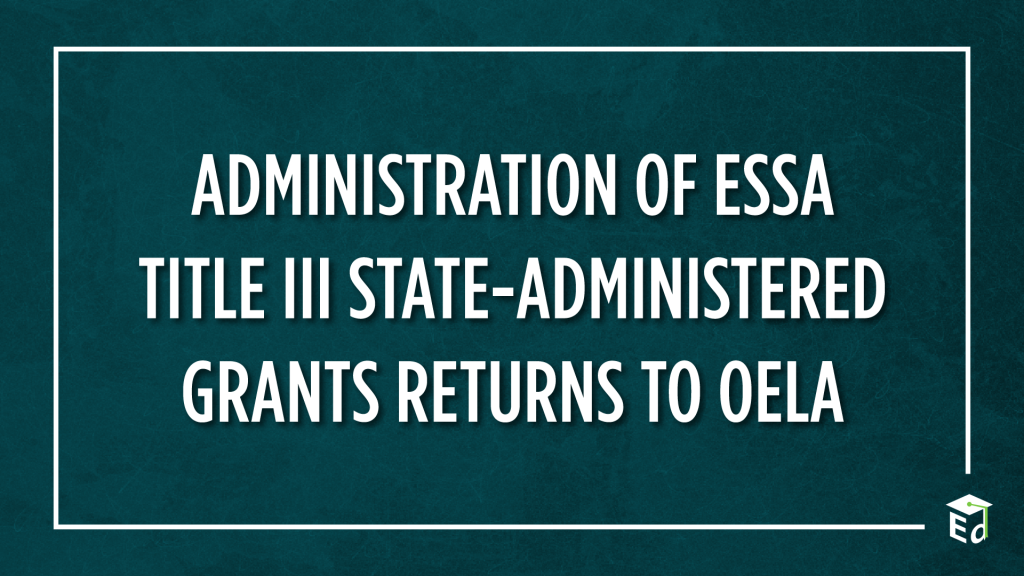[ad_1]

By: Montserrat Garibay, Assistant Deputy Secretary & Director for the Office of English Language Acquisition (OELA)
As part of the Raise the Bar: Lead the World Initiative, the U.S. Department of Education (Department) last month hosted a convening with national and local leaders to discuss the pivotal moment we found ourselves in, as we transform and implement our multilingualism strategy in our day-to-day operations.
Since day one, multilingualism has been part of our key priorities. Our efforts to ensure every student in America has access to high-quality language programs is aligned with Raise the Bar’s work to create pathways for global competitiveness and engagement. We understand it is important to meet the needs of students now and prepare them for the challenges and opportunities of the global economy of the future—and that includes speaking two languages or more.
With over 5.1 million English learners (ELs) in our nation’s classrooms, multilingualism is not only a superpower for our nation’s students, but also a significant cultural and economic asset for the workforce of the future. Young people who come to school with wonderful languages and cultures should be valued and given a safe space to share their multilingual skills. One of the most critical challenges for ELs is achievement and opportunity gaps, which were prevalent even prior to the COVID-19 pandemic, a disproportionate loss of learning time during the pandemic in comparison to their non-EL peers. These gaps were exacerbated by language barriers, technology challenges that prevented access to learning, and logistical problems and lack of preparation to switch to deliver language instruction and services remotely. Data from the early pandemic suggests that while EL proficiency scores across grades 1-12 were consistent, by 2021 proficiency scores were on average six overall composite scale points lower in grades 1-5, and four overall composite points lower in grade six.
If we want to lead the change towards making multilingual opportunities more widely accessible across the nation, we must lead the change starting with the way we operate at the Department.
That is why in February, Secretary Cardona notified Congress on his intention to move functions involving the administration of State-administered grants under Title III of the Elementary Education Act (ESSA) from their placement in the Office of Elementary and secondary Education (OESE) to the Office of English Language Acquisition (OELA), where they were originally located over 15 years ago. Title III funding is designed to improve the education of English learners and through supplemental services that improve the English language proficiency and academic achievement of ELs. This change is going to allow the Department to focus the work that supports English learners in one principal office, while the critical collaboration between the Title III State Formula Program and Title I team in OESE will continue across offices to support States and school districts with high-quality assessments and other coordination starting today.
This commitment to multilingualism is present at all levels of the Department.
- Elevate the critical role of Title III in producing high-quality language instruction to support English learners (ELs, highlight and assist grantees more intently in the development of English language proficiency, and help support improvement in academic achievement among ELs.
- Centralize the core work of supporting and strengthening educational opportunities for ELs within OELA at the Department.
- Increase institutional capacity to lead and implement our multilingual strategy on a national stage.
Moving forward, OELA welcomes Title III with open arms to build the foundation of this transformation. OELA will be raising the bar by leading the way in creating pathways for global engagement through multilingualism for ALL students. The elevation of the work along with the alignment and importance of policies and programs supporting ELs across the Department will ensure that every English learner can truly embrace their superpower to reach their full potential.
[ad_2]



